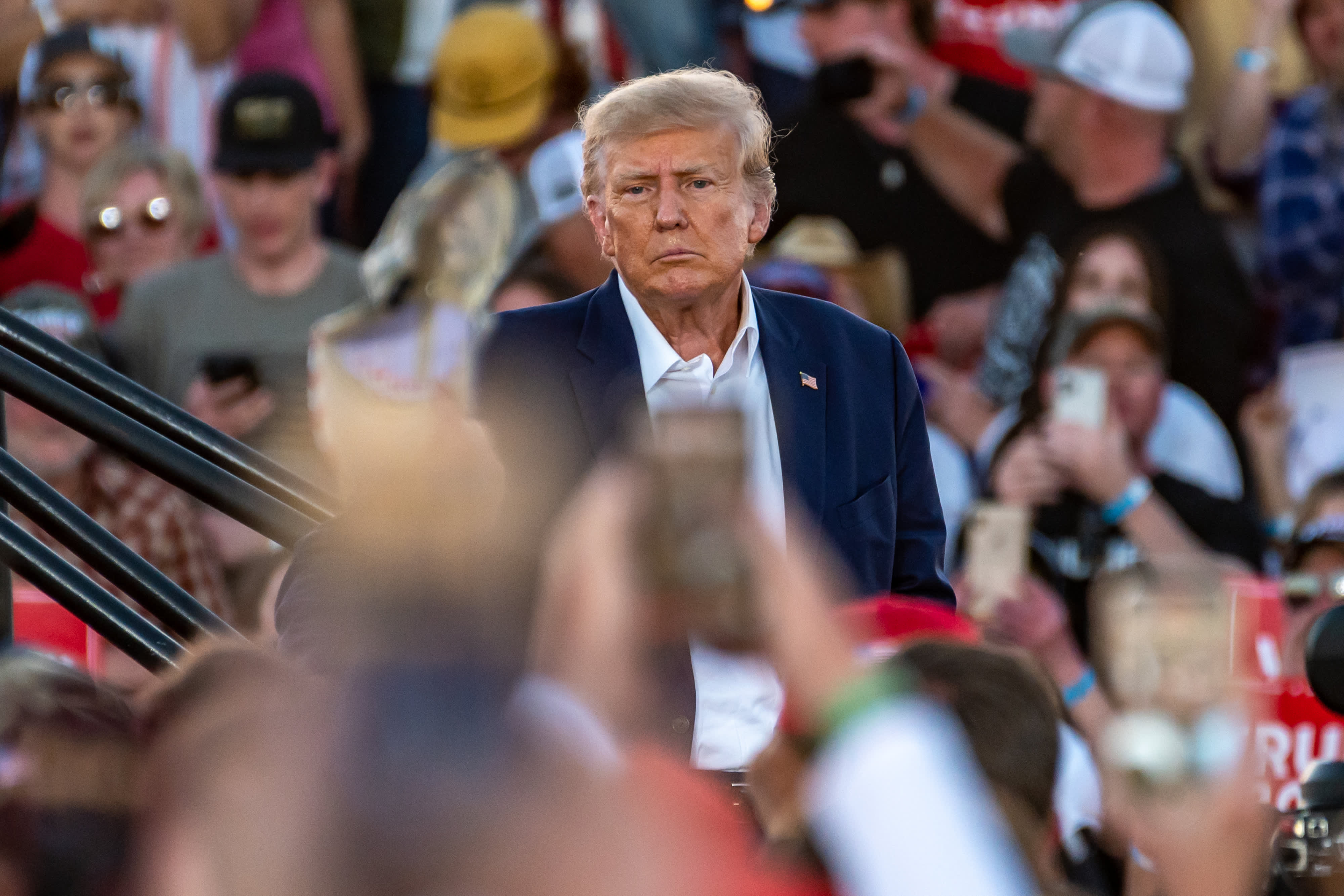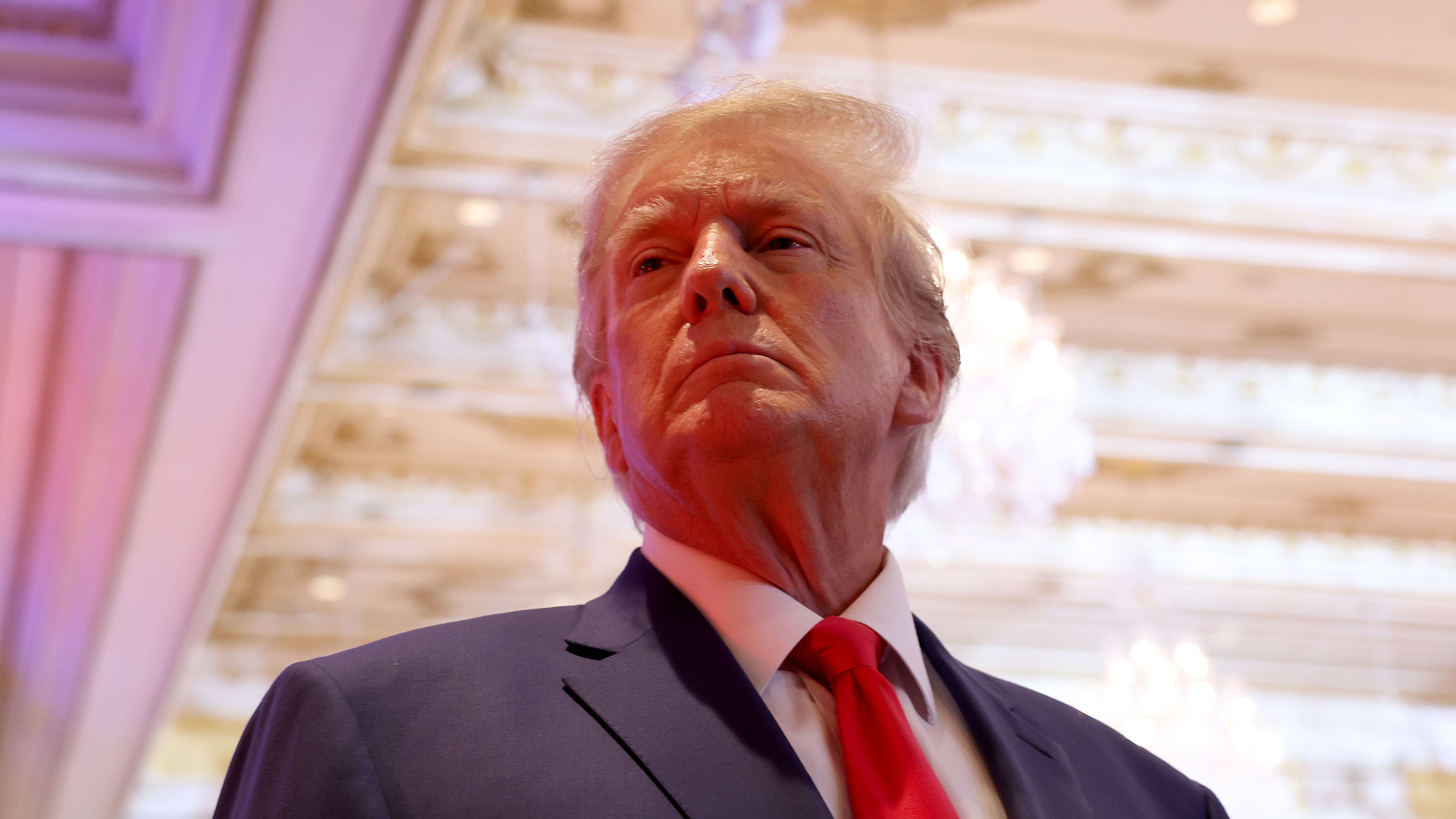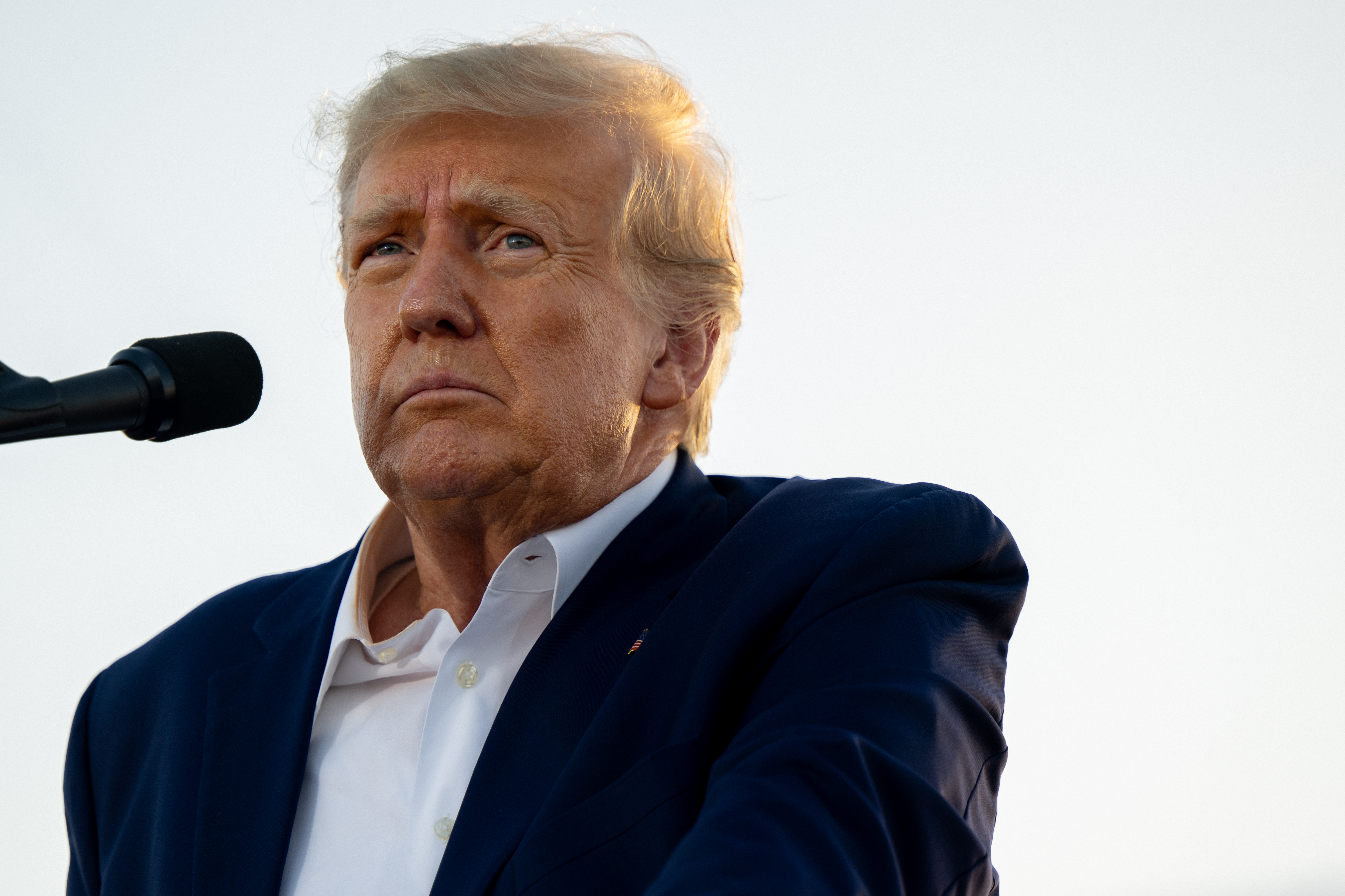What to Know
- A Manhattan grand jury has indicted Donald Trump, marking the first criminal charges ever brought against a sitting or former U.S. president; the indictment remains sealed at this point
- Some experts have said they believe Trump could be charged with falsifying business records, which can be a misdemeanor or a felony under New York law; prosecutors haven't said whether they would seek jail time, but an indictment or even conviction wouldn't preclude Trump from a 2024 run
- The former president has vociferously denied the allegations against him in the hush money case and in several other ongoing, separate investigations; his attorney says the Republican intends to 'vigorously fight this political prosecution in court'
The unprecedented Manhattan grand jury indictment against former President Donald Trump contains about 30 counts of document fraud-related charges, two sources familiar with the matter said Friday, though a source with direct knowledge of the court proceedings says prosecutors aren't expected to seek its unsealing until next week.
It's at the discretion of District Attorney Alvin Bragg's office as far as when they seek to unseal the charges. Should prosecutors seek that before Tuesday, when sources say Trump is expected to appear in Manhattan Criminal Court in person for arraignment, they would have to file an unsealing application. A judge would then have to consider it.
At this point, it appears Bragg will follow normal procedure and wait for the indictment to be unsealed on Tuesday, the sources said. The situation is fluid, sources say, and subject to change.
According to two senior officials familiar with the matter, plans as of now are for Trump to fly to LaGuardia Airport Monday night, then stay overnight at Trump Tower on Fifth Avenue. He is expected to be driven down to the courthouse in lower Manhattan around 1 p.m. ahead of a court appearance at 2:15 p.m., officials said.
Sources say Trump will be arraigned on the 15th floor, Part 59 in the Manhattan Criminal Court building, the same courtroom where Harvey Weinstein was tried and convicted of rape and sexual assault in February 2020.
It is directly across the hall from the courtroom where Trump Corp and Trump Payroll Corp were found guilty in December 2022 of criminal tax fraud, conspiracy and falsifying business records. Attorney Susan Necheles defended the Trump Organization in that case and is expected to appear alongside Trump when he is arraigned.
While he is in the courthouse, officials said there are no plans to handcuff Trump or put him in a holding cell. He will be brought to a back area where he will be fingerprinted, but officials said there is no photograph machine in that area, so there are currently no plans to take a mugshot of the former president. However, there is a chance a machine could be moved there by Tuesday, though some officials would rather not run the risk of having the photo leaked.
Joe Tacopina, an attorney for Trump, confirmed to NBC News that Bragg's office had initially wanted Trump to turn himself in Friday, but Tacopoina said he and other Trump aides rebuffed the ask. Tacopoina said Secret Service needed more time to prepare, a claim Secret Service denies, according to NBC News sources.
Those sources said the Secret Service detail was prepared to transport Trump to New York at a moment's notice, saying its members are simply responding to orders based on agreed-upon dates between the Trump defense team and Bragg's office. Bragg's office confirmed late Thursday that his team had reached out to Trump's to coordinate his surrender. No arraignment date has been set officially. Thus, the grand jury indictment remains sealed for now.
Officials said that "dozens and dozens" of Secret Service agents are involved in the security for the event from the airport to the courthouse and Trump Tower, but they are reluctant to provide specifics on numbers of personnel. Trump is expected to head back to LaGuardia afterward for a planned fight out, but his travel plans after the arraignment are not set in stone — and while it is unlikely, the judge could set travel restrictions or conditions.
The Secret Service indicated they are "prepared for any option that the judge says" and also prepared if the Trump team wishes to make a statement where the former president would have a more visible role.
Some experts have said they believe Trump could be charged with falsifying business records, which can be a misdemeanor or a felony under New York law. To secure a conviction on the felony charge, prosecutors would have to prove that records were falsified with the intention of committing or concealing a second crime.
It's not clear what prosecutors may allege as the second crime.
If Trump indeed turns himself in, expect a carefully choreographed and relatively quick process and release without bail (as is common in New York) — and with a focus on security. There is no playbook for booking an ex-president with U.S. Secret Service protection. Agents are tasked with the protection of former presidents unless and until they say they don’t need it. Trump has kept his detail, so agents would need to be by his side at all times.
It's unlikely Trump would be paraded across a sidewalk in handcuffs or through a crowded court hallway, given security concerns, experts say. For most defendants, that would be typical, as would fingerprinting and a mugshot.
Bragg himself didn't comment as he left his office Thursday night. NYPD has ordered all its officers to be in uniform and prepare to deploy accordingly as of Friday.
Trump Denial
Trump's team has denied wrongdoing throughout the investigation and vociferously did so again Friday. He shouted in all capital letters on his social media platform that the Democrats have “LIED, CHEATED” and more to damage his 2024 presidential run.
Tacopina said during TV interviews Friday he would “very aggressively” challenge the legal validity of the Manhattan grand jury indictment. Trump himself, on his social media platform, trained his ire on a new target, complaining that the judge expected to handle the case, Juan Manuel Merchan, “HATES ME.”
Merchan also presided over the case of the Trump Organization's former chief financial officer, Allen Weisselberg, as well as the tax fraud trial in which the family's company was found guilty on 17 counts including charges of conspiracy and falsifying business records.
Tacopina has accused prosecutors of “distorting laws" to try to take down the former president. He has described Trump as a victim of extortion who had to pay the money because the allegations were going to be embarrassing to him “regardless of the campaign.”
In a lengthy statement of his own on Thursday in which he again denied the allegations, Trump echoed the claims his attorneys made earlier Thursday, calling the case "Political Persecution and Election Interference at the highest level in history."
"The Democrats have lied, cheated and stolen in their obsession with trying to ‘Get Trump,’ but now they’ve done the unthinkable - indicting a completely innocent person in an act of blatant Election Interference," Trump's statement reads. "The Democrats have cheated countless times over the decades, including spying on my campaign, but weaponizing our justice system to punish a political opponent, who just so happens to be a President of the United States and by far the leading Republican candidate for President, has never happened before. Ever."
As he has continuously done in the past, Trump once again called the investigation a "Witch-hunt." He went on to go after Bragg, who he called "a disgrace...doing Joe Biden’s dirty work, ignoring the murders and burglaries and assaults he should be focused on."
Legally, an indictment does not block Trump from running in 2024, as he has repeatedly vowed to do. Prosecutors have not said whether they intended to seek prison time in the event of a conviction, a development that also wouldn’t prevent Trump from seeking or winning the presidency.
A Brief Review of the Hush Money Case
The grand jury spent weeks meeting in secret to probe Trump’s involvement in a $130,000 payment made in 2016 to the porn actor Stormy Daniels to keep her from going public about a sexual encounter she said she had with him years earlier. Trump lawyer Michael Cohen paid Daniels, through a shell company before being reimbursed by Trump, whose company, the Trump Organization, logged the reimbursements as legal expenses.
Earlier in 2016, Cohen also arranged for former Playboy model Karen McDougal to be paid $150,000 by the publisher of the supermarket tabloid The National Enquirer, which then squelched her story.
Trump denies having sex with either woman.
Trump’s company “grossed up” Cohen’s reimbursement for the Daniels payment to defray tax payments, according to federal prosecutors who filed criminal charges against the lawyer in connection with the payments in 2018. In all, Cohen got $360,000 plus a $60,000 bonus, for a total of $420,000.
Cohen pleaded guilty to violating federal campaign finance law in connection with the payments. Federal prosecutors say the payments amounted to illegal, unreported assistance to Trump’s campaign. But they declined to file charges against Trump himself.




